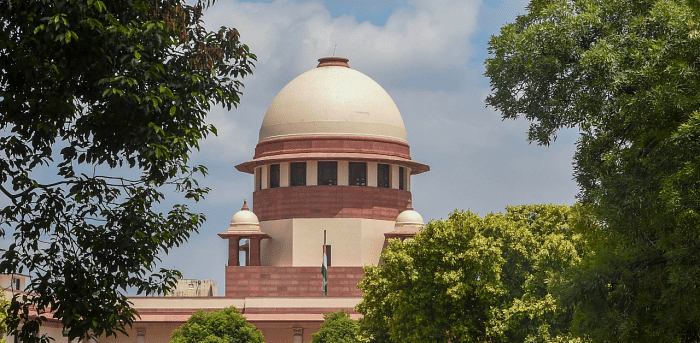
In a major decision, the Supreme Court on Wednesday struck down as unconstitutional the 2018 Maharasthra law, providing reservations to Marathas in jobs and education, for being in violation of 50 per cent cap on quota and fundamental right to equality.
A five-judge bench by a unanimous view also ruled out any need to reconsider the 1992 nine-judge bench judgement in Indra Sawhney (Mandal Commission) case, which fixed 50 per cent ceiling on reservation.
By a majority view of 3:2, the top court also declared that with the 102nd Constitutional Amendment passed in 2018, states would not have the power to prepare a list for socially and educationally backward classes.
During the hearing, several states, including Karnataka, demanded revisiting of the landmark nine-judge bench decision in view of subsequent developments and change in social dynamics.
"There can be no quarrel that society changes, law changes, and people change but that does not mean that something which is good and proven to be beneficial in maintaining equality in the society should also be changed in the name of change alone," Justice Ashok Bhushan wrote on behalf of himself and Justice S Abdul Nazeer.
The 569-page judgement is likely to have far-reaching consequences on pending challenges to the validity of the Union government's 10 per cent Economic Weaker Section quota, and Tamil Nadu's law for up to 69 per cent reservation for the OBC. Both the governments would have to prove exceptional circumstances to support their move.
Allowing appeal against the Bombay High Court's approval to Maratha quota, the Constitution bench presided over by Justice Bhushan said that the pre-condition for breaching 50-per cent limit on quota under Article 16(4) like "extra-ordinary and exceptional circumstances" was not fulfilled in granting 12 per cent and 13 per cent reservation to Marathas in jobs and education, respectively.
The court said the community was satisfactorily represented as 33.23 per cent, 29.03 per cent, 37.06 per cent, and 36.53 per cent in Grade A, B, C and D jobs, respectively. The state law thus defied another criterion of the inadequacy of representation on the basis of quantifiable data, by granting quota beyond 50 per cent.
"One community bagging such as the number of posts in public services is a matter of pride and its representation in no manner can be said to not adequate," the bench said.
It said the data collected from Gaikwad Commission showed that Marathas are not socially and educationally backward class.
Providing reservation in public services is not the only means and method for improving the welfare of the backward class. Other measures like free education, giving concession and skill development can be undertaken to enable backward classes to be self-reliant, the bench said.
The bench declared the Socially and Educationally Backward Classes (SEBC) Act, 2018, as ultra vires to the Constitution. "The Act, 2018 violates the principle of equality. The exceeding of ceiling limit without any extra-ordinary circumstances clearly violates Article 14 and 16 of the Constitution," Justice Bhushan wrote.
Other judges on bench Justices L Nageswara Rao, Hemant Gupta and S Ravindra Bhat agreed to the judgement on the points that the Maratha quota was unconstitutional and there was no need to relook at the 50-per cent cap.
The five judges also upheld the validity of the 102nd Amendment, which granted constitutional status to the National Commission for Backward Classes.
However, the three judges did not agree to Justices Bhushan and Nazeer who held the state was empowered to identify the backward class for granting quota. Justice Rao said there is no obscurity in Article 342 A (1) and it is crystal clear that there shall be one list of socially and educationally backward classes which may be issued by the President.
Likewise, Justice Bhat said by the introduction of Articles 366 (26C) and 342A through the 102nd Constitution Amendment, the President alone, to the exclusion of all other authorities, is empowered to identify socially and educationally backward classes. "The States can, through their existing mechanisms, or even statutory commissions, only make suggestions to the President for inclusion, exclusion or modification of castes or communities, in the list to be published under Article 342A (1)."
Justice Gupta agreed with Justices Rao and Bhat.
